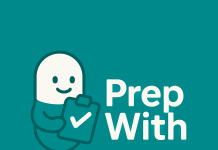Health professionals are one of the crucial parts of a well-functioning health system. Effective patient-oriented care can only be guaranteed by increasing the co-operation of health professionals (Jacobs et al., 2020). Poor interprofessional collaboration can lead to job dissatisfaction among team members, a decrease in the number of staff and a low level of staff commitment to organizational matters. To prepare health professionals to work in interprofessional teams, it is necessary to adapt education and training to equip them with the necessary skills to cope with these challenges (Jacobs et al., 2020). Gaming and in particular escape room activities have been introduced as a learning strategy to enhance soft skills (Guckian et al., 2020). Especially in a medical environment, serious games can be used as a tool for team building. Escape activities are particularly effective tools for interprofessional education and for teaching teamwork (Zhang et al., 2018) and communication skills (Diemer et al., 2019; Morrell & Eukel, 2020; Zhang et al., 2018), which are a critical component of patient safety and a core competency for medical practice.
Gamification promotes not only engagement and communication but also
teamwork, making it a great way for professionals to learn from each other. The preliminary research that has been conducted at the beginning of this project has yielded only one digital escape game for interprofessional education showing the potential for further development in this field, and as such, we have created a prototype of such an educational game. Our final prototype is a puzzle game, made with Visual Studio Code and coding languages such as HTML, JavaScript and CSS. To put the game online and transform it to a webservice, Microsoft Azure was used. It works as a spot-the-mistakes-puzzle, where players can first choose their professions and are then presented with a patient case picture where they need to find and identify the mistakes made. These challenging puzzles and tasks were created and specifically rendered to fit each of our chosen health professions. In addition, a realistic patient case has been created to make the experience engaging and educational. This prototype can be further developed in the future and has potential to be used in the educational system as a way to strengthen interprofessional relationships and teamwork.
A project from the WEducate Team at the University of Applied Sciences St. Pölten.
Master Program Digital Healthcare
Project Coach: Anita Kindritsch, PT MSc
Literature:
- Diemer, G., Jaffe, R., Papanagnou, D., Zhang, X. C., & Zavodnick, J. (2019). Patient Safety Escape Room: A Graduate Medical Education Simulation for Event Reporting. MedEdPORTAL, 10868. https://doi.org/10.15766/mep_2374-8265.10868
- Guckian, J., Eveson, L., & May, H. (2020). The great escape? The rise of the escape room in medical education. Future Healthc J, 7(2), 112–115. https://doi.org/10.7861/fhj.2020-0032
- Jacobs, K., Kuhlmey, A., Greß, S., Klauber, J., & Schwinger, A. (Hrsg.). (2020). Pflege-Report 2019: Mehr Personal in der Langzeitpflege – aber woher? Springer Berlin Heidelberg. https://doi.org/10.1007/978-3-662-58935-9
- Morrell, B. L. M., & Eukel, H. N. (2020). Escape the Generational Gap: A Cardiovascular Escape Room for Nursing Education. The Journal of Nursing Education, 59(2), 111–115. https://doi.org/10.3928/01484834-20200122-11
- Zhang, X. C., Lee, H., Rodriguez, C., Rudner, J., Chan, T. M., & Papanagnou, D. (2018). Trapped as a Group, Escape as a Team: Applying Gamification to Incorporate Team-building Skills Through an ‘Escape Room’ Experience. Cureus, 10(3), e2256. https://doi.org/10.7759/cureus.2256




